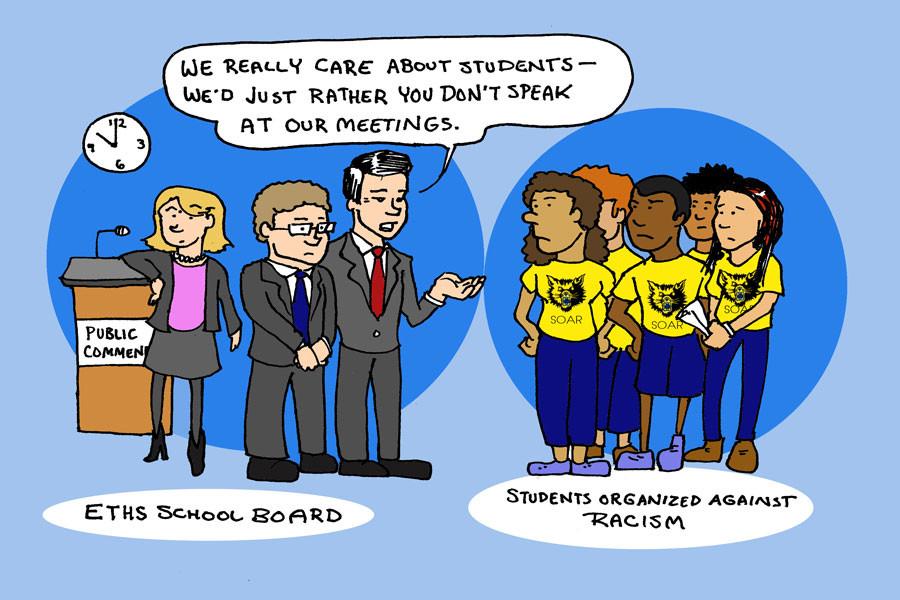Student voices deserve priority at school board meetings
Our school board doesn’t want to hear student voice — not even when students are speaking out about racial injustice in Evanston. The board’s begrudging attitude towards hearing public comments is upsetting. Public comments are scheduled late on a work-week evening. This is exclusionary — people who work inflexible jobs or have children cannot stay. Neither can students who already lack time for schoolwork, extracurriculars, friends, family and sleep.
I arrived at a school board meeting last month with other members of our SOAR Student Leadership Board to speak in defense of the “Pacific Education Group” or PEG, an organiza-
tion which provides racial equity training for Evanston teachers, as well as hundreds of schools around America. Racial bias manifests itself in the classrooms of Evanston, so the board should be pouring as much funding into equity training as possible — not cutting it.
At the meeting, SOAR students waited three hours to speak. Though the students finally spoke at ten o’clock, the usual three minutes of speaking time was cut to two and a half.
The board members have done good work. All of them are committed community members. They are school psychologists, coaches, reporters, volunteers and organiz- ers. One member is an attorney, who has an awesome and impres- sive record in racial discrimination cases.
But many of these same people have not been allies in the recent struggle to fund teacher equity training. Though they gave SOAR students attention as we finally spoke, one board member loudly walked out during our adult sponsor Mr. Winchester’s speech. Student representation on the board is lacking— though we are graced by wonderful representa- tive Camille Allen, she is still tokenized on the board. As a lone student among a group of administrators, her elected respon- sibility to speak at these meetings is seen more as a privilege given by the board than a right of the student body.
When students appear to speak at board meetings, their comments should be given priority. As long as the board schedules unreason- ably late public comment, they exclude the very people they seek to serve.
Your donation will support the student journalists of the Evanstonian. We are planning a big trip to the Journalism Educators Association conference in Nashville in November 2025, and any support will go towards making that trip a reality. Contributions will appear as a charge from SNOSite. Donations are NOT tax-deductible.



